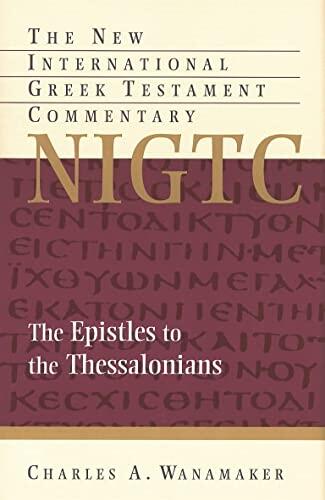
Comentary on 1 & 2 Thessalonians
przez:
Charles A. Wanamaker
,
Paul the Apostle
Język: Angielski
Format: Twarda okładka
ISBN 10: 0802823947
ISBN 13: 9780802823946
Data publikacji:
November 9th, 1990
Wydawca: Wm. B. Eerdmans Publishing Co.
Strony: 344
Gatunki: Religion & Spirituality, Science & Technology
In this insightful examination of Paul’s epistles to the Thessalonians, Charles A. Wanamaker delves into the complexities surrounding the founding of the church in Thessalonica and the challenges it faced. By providing a thorough analysis of the historical and cultural context, the author sheds light on the motivations behind Paul's letters and the significance of his messages to early Christians.
Wanamaker's exploration goes beyond mere textual analysis; he poses literary questions that highlight the nuances of Paul's writing style and rhetorical strategies. The commentary engages with both the theological implications of the letters and the practicalities of early church life, offering readers a comprehensive understanding of the texts.
Throughout the work, the author draws connections between the scripture and contemporary issues, making the ancient words resonate with modern readers. Wanamaker's scholarship invites reflection on the ways these early teachings can inform current faith practices and communal relationships within Christian communities.
By bridging the gap between the ancient and the present, this commentary serves as a valuable resource for theologians, students, and anyone interested in the foundations of Christian belief as reflected in the epistles of 1 and 2 Thessalonians.
Wanamaker's exploration goes beyond mere textual analysis; he poses literary questions that highlight the nuances of Paul's writing style and rhetorical strategies. The commentary engages with both the theological implications of the letters and the practicalities of early church life, offering readers a comprehensive understanding of the texts.
Throughout the work, the author draws connections between the scripture and contemporary issues, making the ancient words resonate with modern readers. Wanamaker's scholarship invites reflection on the ways these early teachings can inform current faith practices and communal relationships within Christian communities.
By bridging the gap between the ancient and the present, this commentary serves as a valuable resource for theologians, students, and anyone interested in the foundations of Christian belief as reflected in the epistles of 1 and 2 Thessalonians.